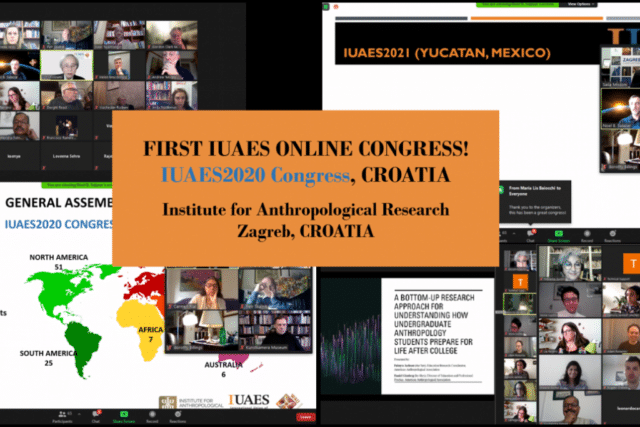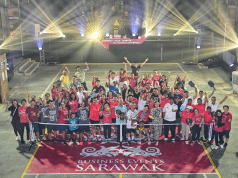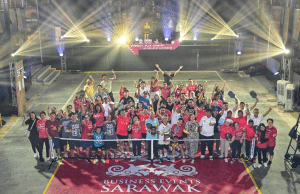The first fully virtual IUAES2020 International Congress, organized by the Institute for Anthropological Research in Zagreb from 9 to 14 March, gathered 470 participants from 54 countries.
The IUAES (International Union of Anthropological and Ethnological Sciences) was founded in 1968, with its objectives reflecting the search for a more peaceful and tolerant world than the one that existed during World War II. Wartime showed the need to strengthen the social sciences, especially anthropology. From the outset, the primary objective of the IUAES has been to broaden the vision and concept of anthropological knowledge to include perspectives and approaches from around the world. This is why many renowned scientists from different countries and regions have participated in the main activities of the Union.
The first IUAES International Congress was held in London in 1934. Since then, the IUAES has held world congresses every 5 years, with a number of smaller congresses each year. Over time, the congresses have evolved into forums for anthropologists, ethnologists, and scientists from related disciplines from around the world. An important objective of the IUAES is to create opportunities for collaboration and interaction between scientists and students on a global scale.
Zagreb hosted the IUAES World Congress for the first time in 1988, while the Institute for Anthropological Research hosted the IUAES Congress held in Dubrovnik in 2016, with about 900 participants. It is also the host of this year’s first fully virtual IUAES Congress.
The challenges of organizing the first virtual International Congress and its success
The Congress was originally planned for October 2020 in Šibenik, but was postponed to 2021 due to the COVID-19 pandemic and took place from 9 to 14 March 2021 under the title IUAES2020 Coming of Age on Earth: Legacies and Next Generation Anthropology. The Institute for Anthropological Research has been working on the preparation of the IUAES2020 Congress since the acceptance of its candidacy in 2019. It was decided that the conference topics would include changes of all kinds that humanity is facing today, that is, environmental, medical, economic, cultural and political challenges. After the outbreak of the COVID-19 pandemic, this topic became even more relevant, and many lectures dealt precisely with the changes that are currently taking place in societies around the world.

“We have hosted a number of major international scientific congresses, but the IUAES2020 Congress was the first virtual congress in our organization. It was something we had no experience with so far, but the reactions and messages we have received from the IUAES and from many individual participants during and after the Congress expressed their satisfaction, which is the greatest proof that we did a good job. Due to the COVID-19 pandemic, we had to move many deadlines and be prepared for a dynamic organization that depends on many factors. We are certain that we would attract more participants with a classic, live congress because people are eager to travel, and our beautiful coast only adds to that appeal. On the other hand, there were those who were happy that with a small registration fee and just a few mouse clicks, they could attend this important congress without having to travel and be away from home and work,” the Institute stated.
Rich science program with many live lectures and roundtables
The Congress opened on 9 March with a welcome speech by Saša Missoni, PhD, the President of the Congress, Director of the Institute and one of the IUAES Vice-Presidents, followed by speeches by Prof. Junji Koizumi, PhD from Japan, the President of the IUAES and Prof. Noel Salazar, PhD from Belgium, the IUAES Secretary-General. It ended with the IUAES General Assembly. The Congress was attended by 470 participants from 54 countries from all the continents. There were 5 plenary sessions, 350 lectures held in 56 thematic sessions and 11 ethnographic films were shown.
Even though the organizers recommended that participants pre-record their presentations to be shown at the Congress, the vast majority still chose to present their talks live. The Congress was designed in such a way that the majority of the program consisted of thematic panels from all areas of anthropology, with plenary sessions taking place each day at 3:00 p.m. Croatian time, so that participants from all over the world could attend.
Particularly noteworthy were the presentations by Prof. Senka Božić-Vrbančić, PhD (University of Zadar) Precarity in a Time of Historical Present and Prof. Thomas Hylland Eriksen, PhD (University of Oslo, Norway) Anthropology in the Shadow of Anthropocene Overheating, as well as the roundtables Empowering Anthropology in the Face of Crises organized by the World Anthropological Union (WAU) and Not Quite the End of Nomadism? organized by Prof. Anthony Howarth, PhD, University of Oxford, UK.
The next IUAES congresses are scheduled for November 2021 in Mexico, also in virtual form, 2022 in Russia and 2023 in India. With the satisfaction of having hosted this Congress, the organising team of the Zagreb Institute for Anthropological Research announced its candidacy for new international congresses.














